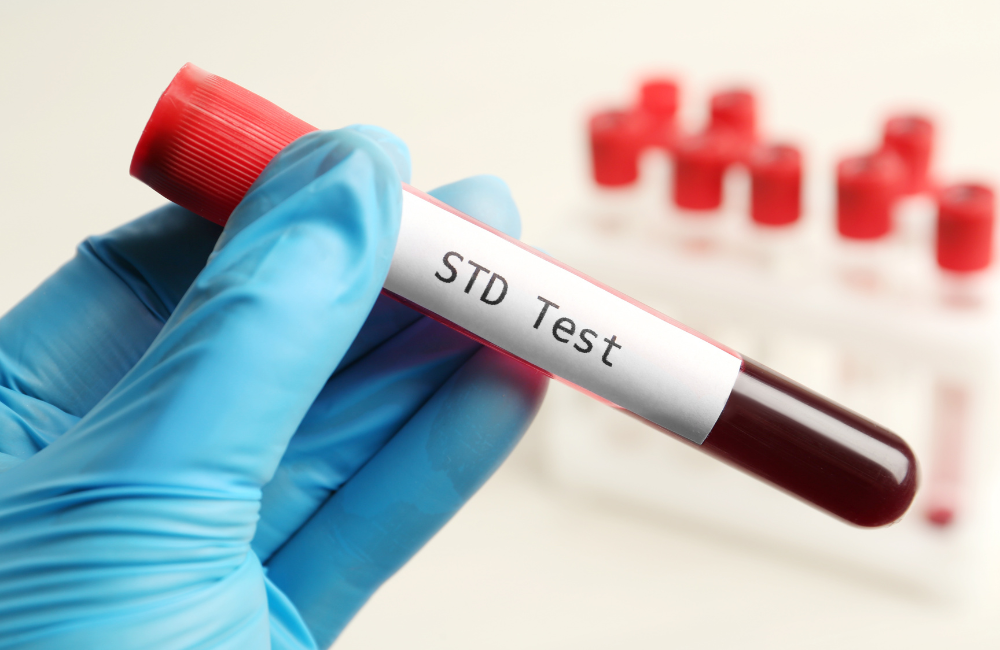
Sexual health is a critical aspect of overall well-being, and knowledge plays a pivotal role in maintaining it. In Bridgeport, CT, trusted clinics provide comprehensive STD testing services, offering individuals the means to take charge of their sexual health. To empower you with the information you need, we’ve compiled a list of frequently asked questions about STD testing. Whether you’re considering testing, have concerns about specific STDs, or want to understand the testing process better, this blog will give you insights into this crucial aspect of sexual well-being.
No, you don’t always need to ask your doctor specifically for an STD test. While discussing sexual health with your healthcare provider is an excellent practice, many clinics, including DOCS Urgent Care & Primary Care – Bridgeport, offer confidential STD testing. You can request STD testing in Bridgeport, CT, directly at these clinics without needing a referral from your doctor. It’s a proactive step in taking charge of your sexual health, especially if you’ve had unprotected sex or are experiencing symptoms.
While you don’t need to specifically ask your doctor for STD testing in Bridgeport, CT, visiting your healthcare partner can still be beneficial for the following reasons:
While you can directly request STD testing in Bridgeport, CT, at clinics like DOCS Urgent Care & Primary Care – Bridgeport, your doctor can provide comprehensive sexual health guidance. They can discuss your sexual history, assess your risk factors, and recommend appropriate testing based on your unique situation. This personalized approach ensures you receive the most relevant and necessary tests.
In addition to STD testing in Bridgeport, CT, your doctor can discuss vaccination options. For example, they can recommend vaccines like the HPV vaccine or the hepatitis B vaccine, which can protect you from certain STIs. Your doctor can also ensure you are up to date on your vaccinations.
Your healthcare provider can assist with contraception methods and safe sex practices. They can help you choose a birth control method that aligns with your lifestyle and preferences. Additionally, they can discuss the importance of consistent and correct condom use to reduce the risk of STIs.
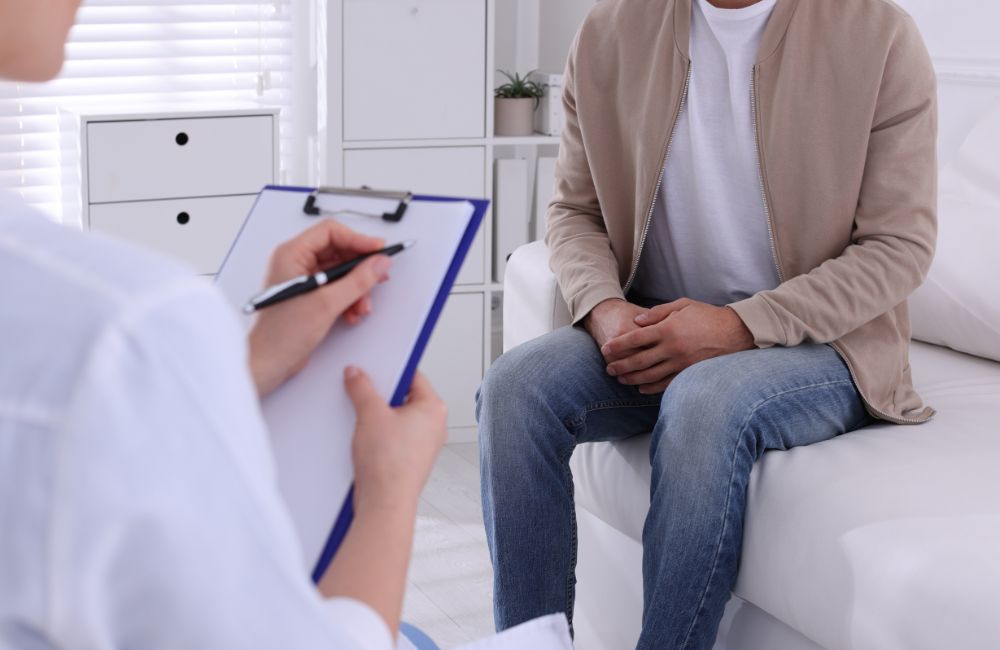
STD testing in Bridgeport, CT, includes screenings for chlamydia, gonorrhea, syphilis, HIV, herpes, and hepatitis. Professionals from clinics such as DOCS Urgent Care & Primary Care – Bridgeport in Bridgeport, CT, can help you decide which tests are appropriate based on your circumstances.
Determining which method of STD testing you need depends on various factors. Here are some of them:
When seeking STD testing in Bridgeport, CT, your sexual history is pivotal in determining which tests are necessary. Your healthcare provider will inquire about the number of sexual partners you’ve had, the types of sexual activities you engage in (vaginal, anal, or oral sex), and whether you’ve had recent sexual encounters with individuals who have tested positive for an STD. This information allows your healthcare provider to assess your risk factors accurately. It’s essential to provide honest and detailed answers to ensure that the recommended tests align with your circumstances. Understanding your sexual history helps tailor the testing process to your needs and potential exposure risks.
Experiencing symptoms that could indicate an STD, such as unusual genital discharge, genital sores, pain during sexual intercourse, or a burning sensation during urination, should prompt immediate discussion with your healthcare provider. Sharing this critical information about your symptoms is crucial when undergoing STD testing in Bridgeport, CT. Symptoms provide valuable clues that can guide the selection of appropriate tests. Your healthcare provider will consider your reported symptoms during the assessment to ensure that the right tests are conducted, allowing for accurate diagnosis and effective treatment, if necessary.
Identifying and discussing your specific risk factors is vital when contemplating STD testing in Bridgeport, CT. Engaging in unprotected sexual intercourse, having multiple sexual partners, or participating in sexual activities with intravenous drug users can elevate your risk of contracting certain STDs. Your healthcare provider will inquire about these risk factors and their duration. Being candid about any potential exposures ensures a comprehensive assessment of your situation.
When it comes to STD testing in Bridgeport, CT, the guidance of your healthcare provider is invaluable. They possess extensive experience and expertise in STD testing and can offer expert recommendations tailored to your situation. Your healthcare provider will consider your sexual history, reported symptoms, and risk factors to determine the most appropriate tests. Be receptive to their guidance and recommendations, as they are designed to provide you with the most accurate and relevant information about your sexual health. Following their advice ensures your STD test is comprehensive and aligned with your needs and circumstances.
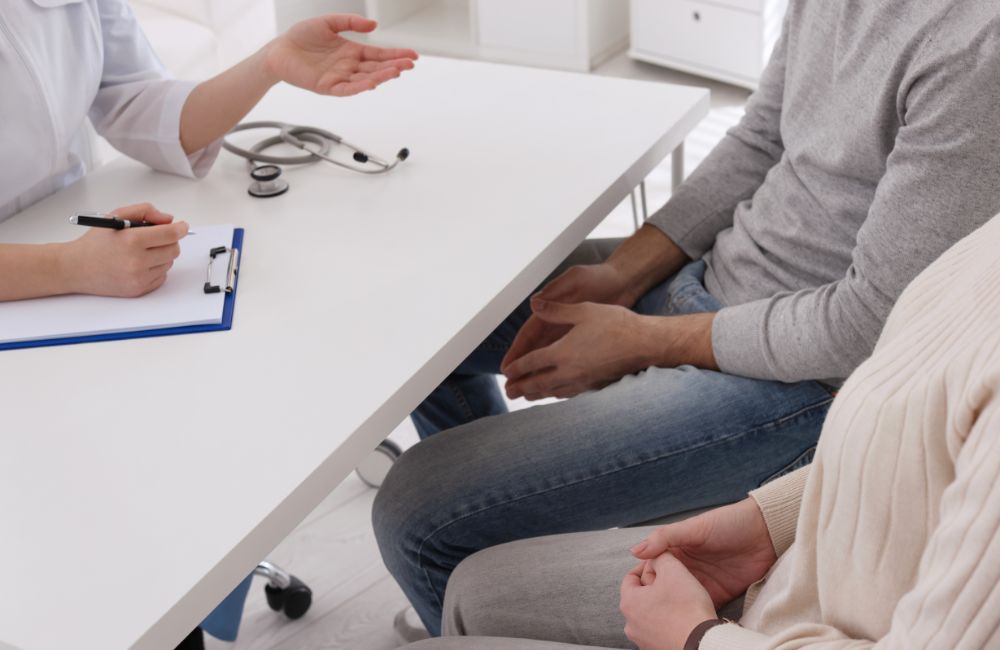
On the day of your STD test, you can expect a straightforward and discrete process. The procedures for STD testing are relatively quick and virtually painless. Rest assured that your privacy and confidentiality will be respected throughout the process. Once your samples are collected, they will be sent to a laboratory for analysis, and you’ll receive your results within a few days.
Here are the procedures you can expect during your STD testing in Bridgeport, CT:
When you undergo STD testing in Bridgeport, CT, you may be asked to provide a urine sample, especially if tests for infections like chlamydia and gonorrhea are part of the assessment. This process is designed to be straightforward and non-invasive, prioritizing your comfort and privacy. You’ll be guided to a private area with dedicated facilities for sample collection. Here, you will be provided with a clean and sterile container for your urine sample. It’s crucial to follow the instructions provided by our healthcare professionals meticulously to ensure the accuracy of the sample. This process respects your confidentiality while allowing for precise testing for common sexually transmitted infections.
In some instances, STD testing may necessitate a blood sample. This is a quick and relatively painless procedure that plays a vital role in diagnosing certain infections. A trained phlebotomist or healthcare professional will cleanse the area, usually on your arm, with an antiseptic to maintain sterility. They will then gently insert a thin needle into a vein to draw a small amount of blood. It’s important to note that most individuals experience minimal discomfort during this process, typically taking just a few minutes. Your blood sample will be securely labeled and sent to a certified laboratory for precise analysis.
Swab tests are a valuable component of STD testing in Bridgeport, CT, especially when specific infections like herpes or syphilis are under consideration. Swabbing involves the collection of samples from precise areas, such as the genital, anal, or oral regions, where symptoms or concerns may be present. Our healthcare professionals are well-versed in performing swab tests with precision and care, prioritizing your comfort and well-being. These swab tests are conducted with minimal discomfort, and the collected samples are crucial for accurate diagnosis.
In cases where visible symptoms or concerns are present, a physical examination may be included as part of your STD testing in Bridgeport, CT. This examination involves visually inspecting the genital, anal, or oral areas, depending on your reported symptoms. It is conducted with sensitivity and respect for your privacy, ensuring a comfortable and dignified experience. During the examination, your healthcare provider will carefully assess any visible lesions, sores, or rashes, evaluate lymph nodes, and discuss any discharge or concerns you may have reported.
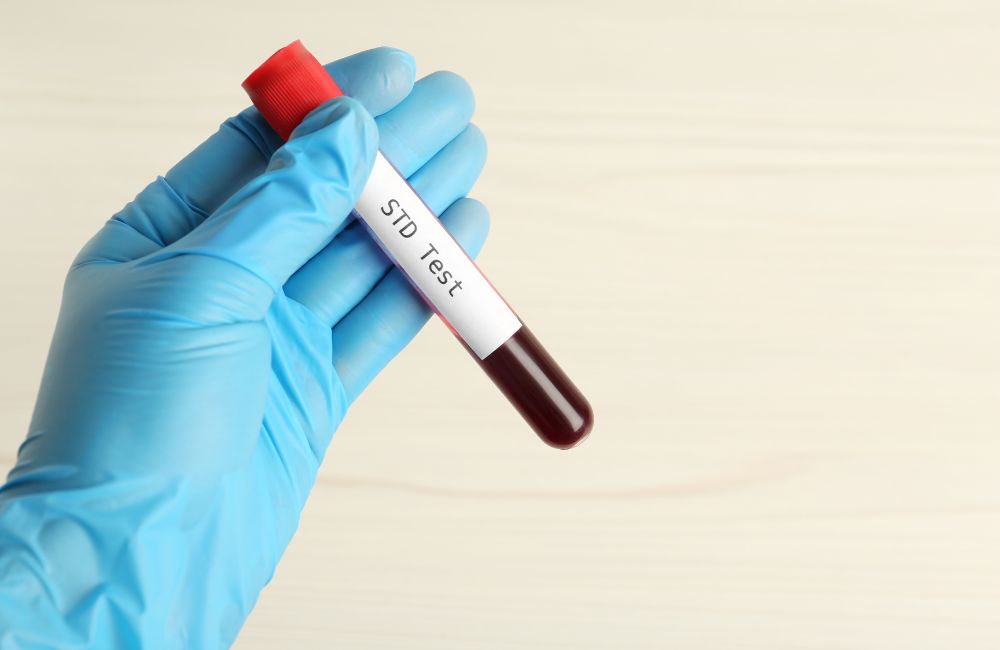
Receiving positive results for an STD can be emotionally challenging, but it’s essential to remember that many STDs are treatable, and early detection is key. If your results are positive, your healthcare provider will discuss treatment options.
Here are some reminders to keep in mind if your results prove positive:
Receiving positive results for an STD can be an emotionally charged experience. Feelings of anxiety, fear, and uncertainty may surface. However, it’s essential to recognize that many STDs are treatable, and early detection plays a pivotal role in effective management. Staying calm is paramount for making well-informed decisions about your health. Panicking can hinder your ability to navigate the next steps wisely. Remember that you are not alone in this journey; healthcare providers specializing in STD testing in Bridgeport, CT, can guide and support you.
Promptly seeking treatment upon receiving positive STD results is of utmost importance. The severity of STDs can vary, but many are amenable to treatment through medications prescribed by a healthcare provider. Treatment serves several critical purposes, including curing the infection, alleviating symptoms, and preventing complications. By initiating treatment as soon as possible, you take significant strides toward restoring your health and minimizing the impact of the infection.
Your healthcare provider will create a tailored treatment plan based on your diagnosis. Following their guidance meticulously is essential for a successful recovery. This entails taking prescribed medications exactly as directed, completing the full course of treatment, and attending any follow-up appointments as recommended. Adhering to your treatment plan is a proactive measure to ensure the infection is effectively managed and any potential complications are mitigated.
Responsibility and transparency are key when dealing with a positive STD diagnosis. If you’ve had recent sexual partners or partners before your diagnosis, it’s imperative to inform them about your positive STD result. Encourage them to undergo STD testing in Bridgeport, CT, as well to ascertain their status and prevent further transmission. Open and honest communication in this regard is ethical and a responsible step in safeguarding the sexual health of both you and your partners.
After successful treatment and recovery, it’s essential to prioritize protection during sexual activity. Consistently using barrier methods like condoms can significantly reduce the risk of transmitting or contracting STDs. Safe sex practices are crucial for protecting yourself and your partners from future infections. Regular STD testing in Bridgeport, CT, is also recommended to detect infections early and maintain your sexual health.
Depending on the specific STD you’ve been diagnosed with, your healthcare provider may recommend getting STD tested a second time as part of your comprehensive care plan. This step is essential to ensure the infection has been successfully treated and cleared from your system. The timing and frequency of re-testing may vary based on the type of STD and the treatment provided. Completing these follow-up tests is responsible for confirming your health status and providing peace of mind. It also ensures that any potential remnants of the infection are identified and addressed promptly, contributing to your overall well-being.
A positive STD diagnosis presents an opportunity to expand your knowledge about sexually transmitted infections. Educating yourself about STDs, including their modes of transmission, common symptoms, and prevention methods, empowers you to make informed decisions about your sexual health. Knowledge is a powerful tool for safeguarding yourself and your partners from future infections. Resources, both online and through healthcare providers, can offer valuable insights and guidance in understanding your condition and preventing its recurrence.
Coping with a positive diagnosis after getting STD tested can be emotionally challenging. Feelings of anxiety, stigma, or isolation may arise. It’s essential to recognize that you are not alone in this journey. Don’t hesitate to seek emotional support from trusted friends, understanding family members, or a counselor who specializes in sexual health. Many organizations and support groups also offer resources and a community for individuals living with STDs. These networks can provide a safe space for sharing experiences, finding encouragement, and accessing valuable guidance on managing the emotional aspects of a positive diagnosis.
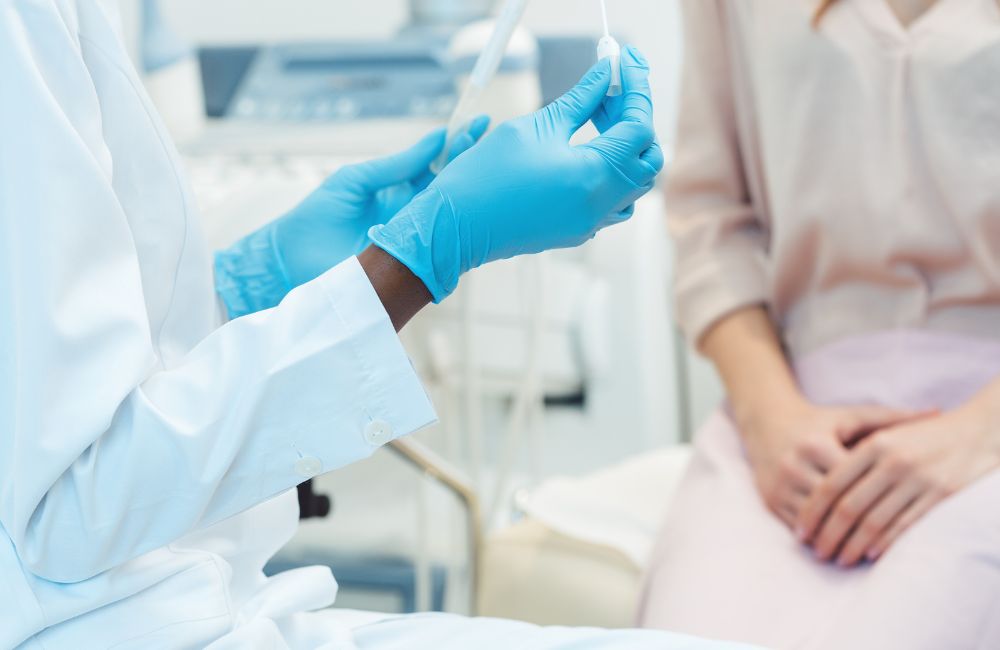
Even if you’re not sexually active, STD testing in Bridgeport, CT, can still be relevant. Some STDs can have a long incubation period, meaning you may have been exposed to an infection in the past. An STD test can provide peace of mind and ensure that potential infections are detected and treated promptly.
Aside from being sexually active, STDs can be contracted from the following sources:
Sharing needles or syringes with an infected person, even for non-sexual reasons like drug use or medical procedures, is a high-risk behavior for transmitting bloodborne infections. Diseases like HIV and hepatitis B and C can be spread through contaminated needles or syringes. This mode of transmission is of particular concern in the context of intravenous drug use, where individuals may share injection equipment. It underscores the critical importance of harm reduction programs, needle exchange services, and STD testing in Bridgeport, CT, to reduce the risk of such infections.
Some STDs, such as herpes and syphilis, can be transmitted through close personal contact, extending beyond sexual activity. Close personal contact includes kissing, skin-to-skin contact, and even sharing items like eating utensils or towels. These infections can be passed between family members, friends, or individuals living close quarters. It’s essential to be aware of the transmission routes of specific STDs to take appropriate precautions. While the risk of transmission through casual contact is generally low, practicing good hygiene, avoiding contact with active sores or lesions, and taking regular STD testing in Bridgeport, CT, can further reduce this risk.
Certain STDs can be transmitted from a pregnant individual to their infant during childbirth. This non-sexual mode of transmission underscores the importance of regular STD testing during pregnancy. Detecting and managing infections during pregnancy is crucial to protect the health of both the mother and the baby. Healthcare providers can guide on preventing mother-to-child transmission, including appropriate treatment options and delivery planning.
While rare in regions with stringent blood screening protocols, there have been historical instances where STDs like HIV were transmitted through blood transfusions. Advances in blood screening techniques and rigorous safety measures have significantly reduced this risk. Blood banks and healthcare facilities follow strict protocols to ensure that donated blood is safe for transfusion. It’s important to have confidence in the safety of blood transfusions in regions with established healthcare systems.
Inadequate sterilization of equipment or improper hygiene practices during tattooing or piercing procedures can potentially lead to the transmission of infections, including hepatitis B and C. Individuals seeking tattoos or piercings should choose reputable, licensed establishments that follow strict hygiene and sterilization procedures.
Sharing personal items like razors, towels, or clothing with an infected individual can occasionally transmit certain STDs, particularly if there is direct contact with bodily fluids or open sores. While the risk of transmission through shared personal items is generally low, it’s advisable to exercise caution. Avoid sharing items that may come into contact with broken skin or mucous membranes. Maintaining good personal hygiene practices, including using your grooming items, can further reduce this risk.
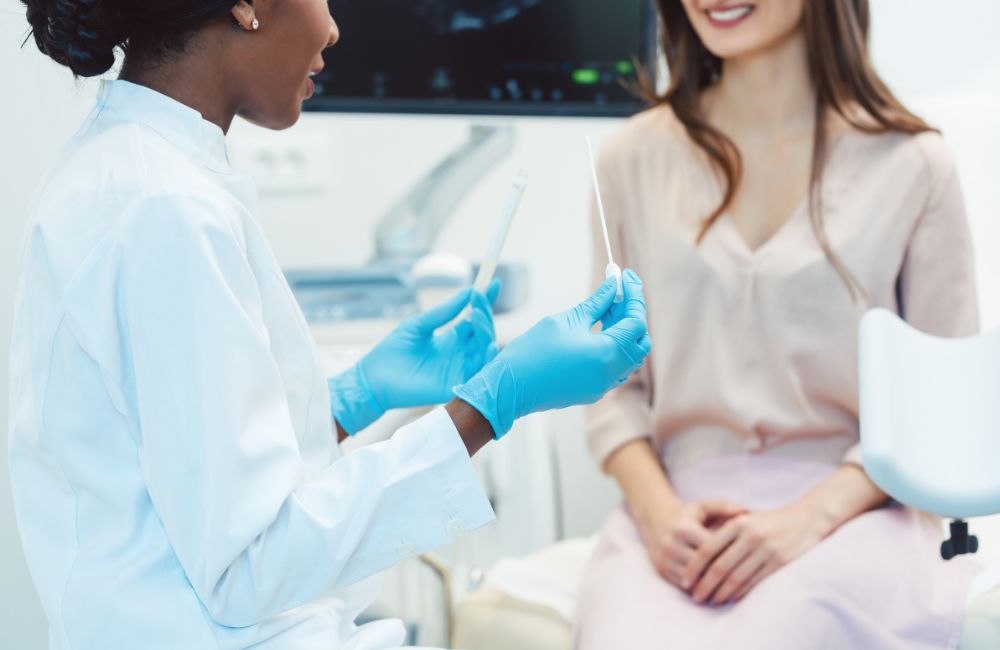
STD testing in Bridgeport, CT, is vital to maintaining your sexual health. Don’t hesitate to seek testing services, whether you have specific concerns or simply want to stay informed about your health. Remember that taking control of your sexual health is a proactive step towards a healthier future.
Experience rapid and confidential STD testing like never before at DOCS Urgent Care & Primary Care – Bridgeport! Our state-of-the-art facility offers results in just 20 minutes, providing peace of mind and quick access to critical health information. Your privacy and well-being are our top priorities, and our expert team is committed to delivering safe and discreet services.
Contact us now to prioritize your sexual health and get the fast, reliable results you deserve.



During this surge in COVID-19 cases, our primary focus is meeting the high demand for tests, and we are seeing higher than usual wait times. This means we are unable to answer most phone calls. Please know that our teams are working very hard during this time to care for as many patients as safely as possible. Please click the button below for answers to common questions. We appreciate your understanding.